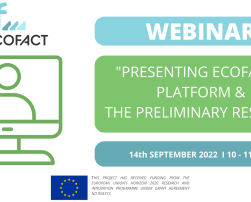
Presenting the ECOFACT platform and our preliminary results.
On 14th of September, ECOFACT will be hosting a webinar to provide update on the progress of the project platform from the period of Month 1 to Month 24.

Presenting the ECOFACT platform and our preliminary results.
On 14th of September, ECOFACT will be hosting a webinar to provide update on the progress of the project platform from the period of Month 1 to Month 24.
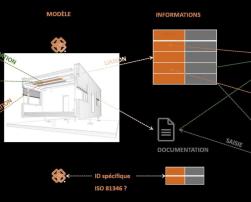
Determining a methodology for collecting digital model data with a view to the life cycle assessment of the Smart Living Lab.
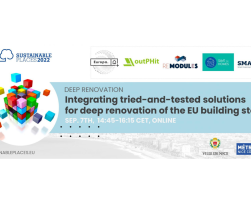
This workshop will focus on improving energy efficiency of European buildings through interventions across the whole value chain, and the mobilisation of all sectors – government, private enterprises, research/academia and civic society. It aims to highlight the common and complementary insights and solutions contributed by five related projects, effectively and reliably leading to high performance, deep renovations.
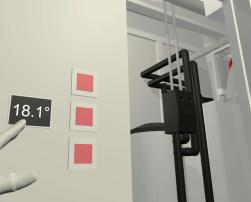
Developing a digital twin prototype for the monitoring and maintenance management of the Smart Living Lab building on application.
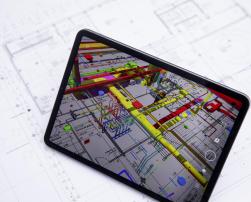
Using Augmented Reality (AR) based on the digital models of the Smart Living Lab to communicate the project design.
Tools to understand and decide on a better quality of use and performance of new and old buildings.
The EU-funded CRACK-IT project aims to develop numerical crack simulation and identification techniques for stone masonry structures that can be used in professional practice. To achieve this, a crack detection tool will be developed, allowing for the crack documentation of damaged masonry structures. The project's work will also enable the assessment of the seismic safety of these buildings.

Futurebuild is about building a better future for the built environment. They provide the stage for inspiring ideas, innovative solutions & knowledge sharing to drive sustainable construction and help them reach their goal of net zero.
DigiChecks proposes a digital environment for management of permits and compliance in building and construction.
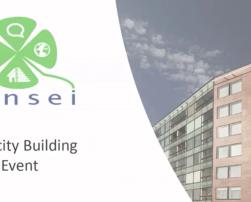
How can the Pay-for-Performance (P4P) model contribute to increasing energy efficiency rates and investments in the European Union? Will energy savings be seen as a resource? How will the implementation of energy retrofitting projects positively impact different groups of stakeholders? These and other topics were discussed on this series of Capacity Building Events, which were organised by SENSEI Consortium in these months. The first session took place the 20th June. Watch it here.